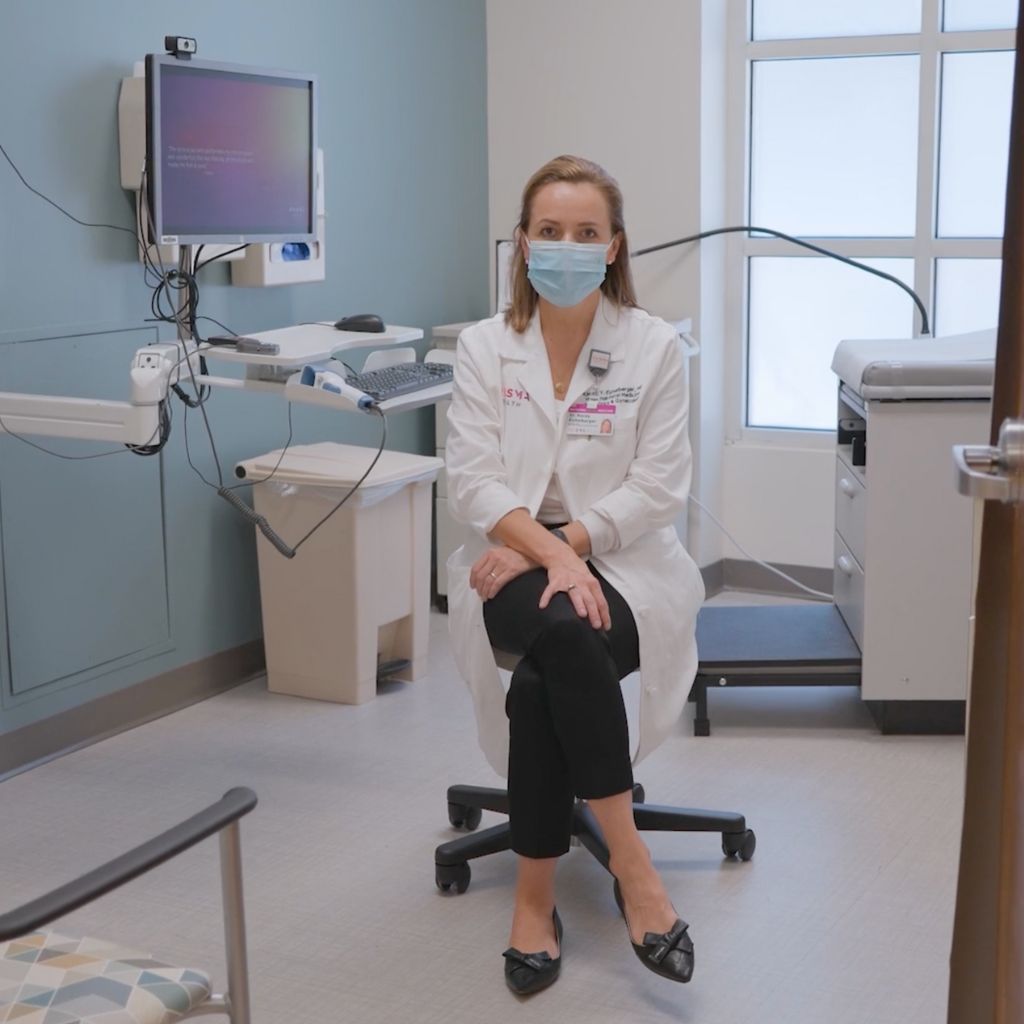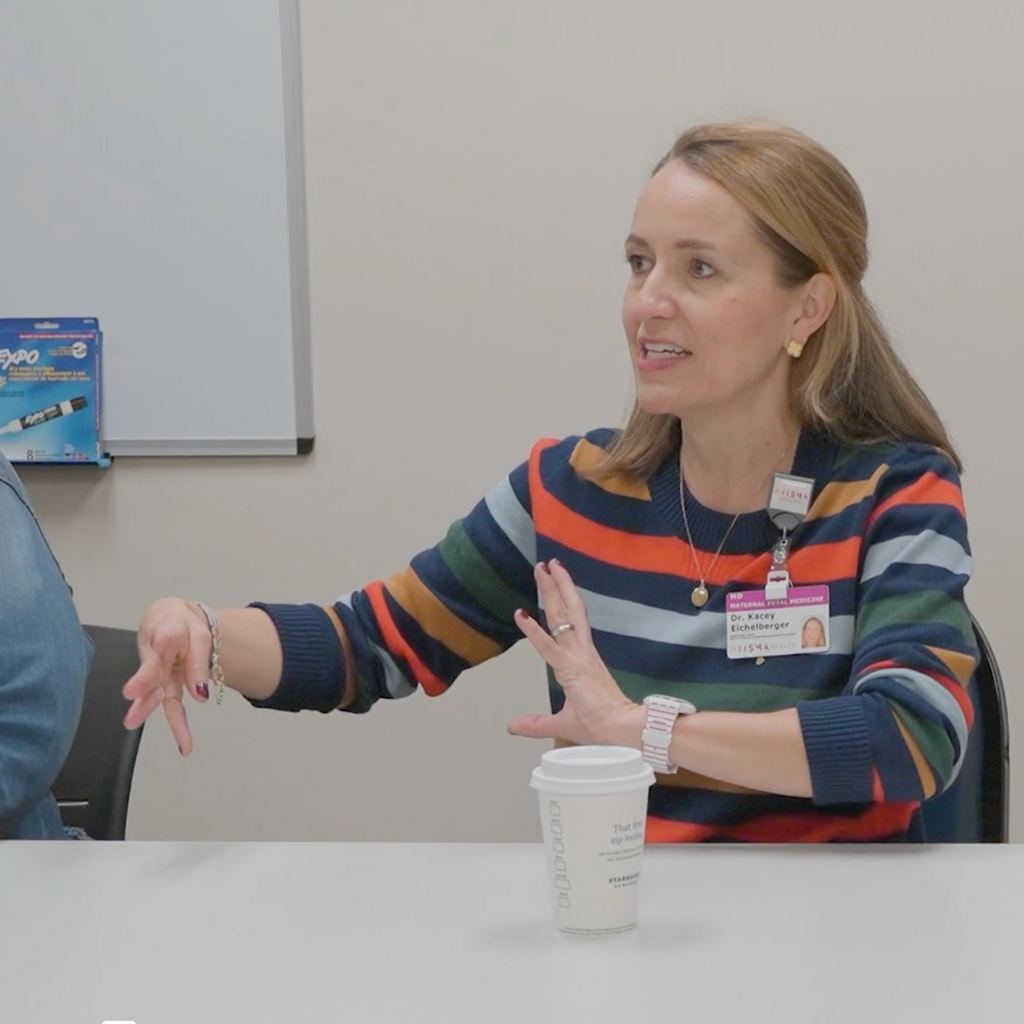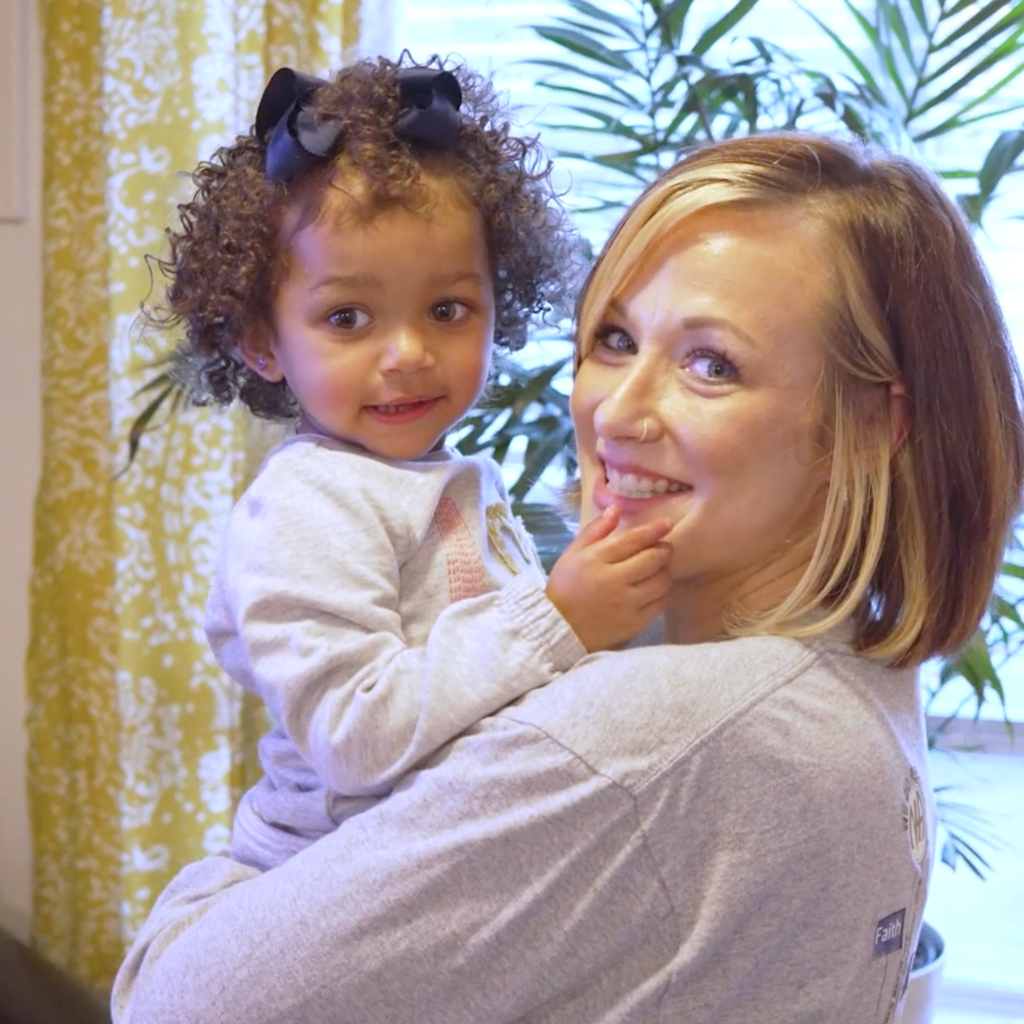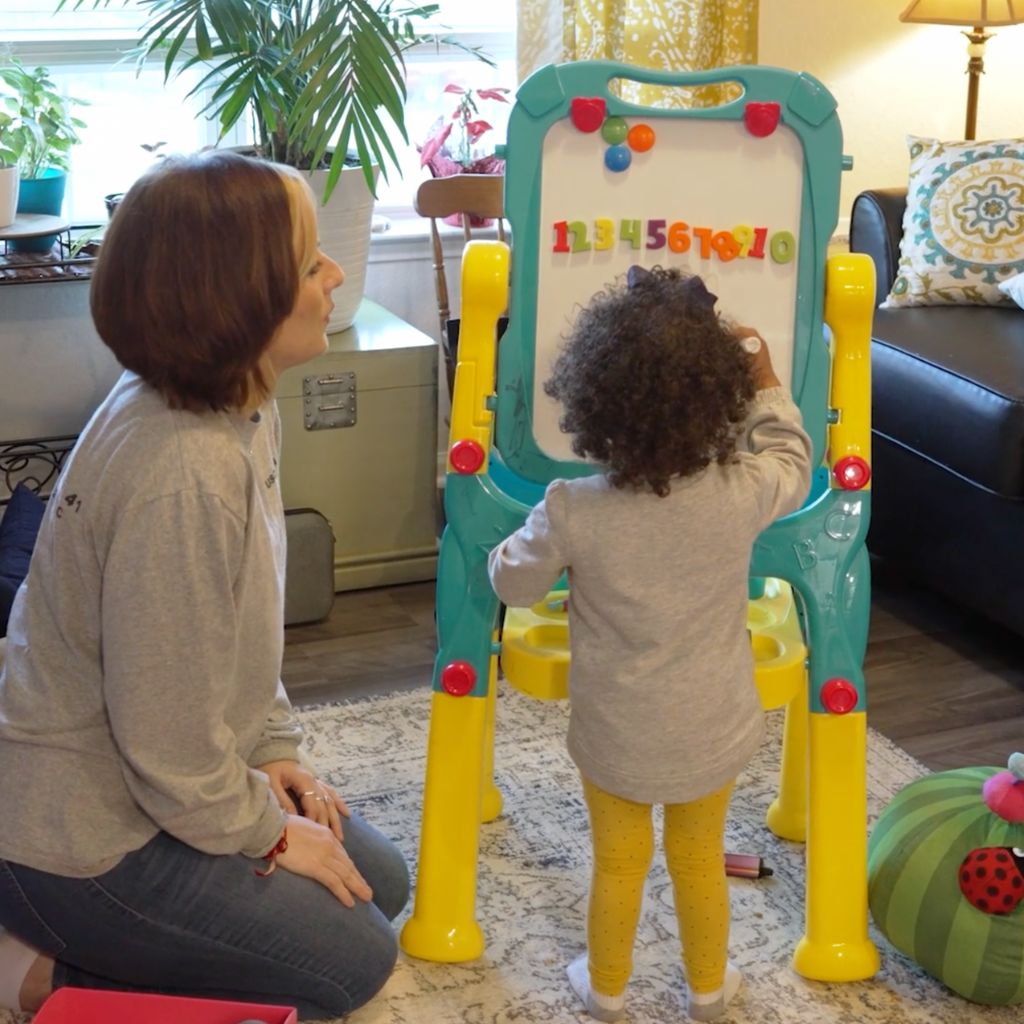For Magdalene Clinic patient Faith Godfrey, she knew she was in the right place during her first visit. “The first time I went to the OBGYN, I knew that they were going to be drug testing me. And being pregnant, I know that brings up like DSS and all that stuff. They told me about the Magdalene Clinic. I met with Dr. Eichelberger, and she was great. I didn’t feel any judgment from her whatsoever. I could talk openly with her about what was going on, and I felt like I was in the right place.”
An important part of the services Magdalene Clinic provides is access to a peer support specialist at every visit. This is someone who has lived experience with substance use and recovery and stays in close touch with the patient to offer support.
“I got to meet with the peer support specialist Stacy during my first appointment. I told her I wanted to get help. She kept in contact with me the entire time. Even on a personal level, she gave me support, encouragement, hope and prayers. I still talk to her to this day,” Faith said.
When a patient’s substance use disorder is mild or moderate, their treatment is facilitated fully by the services and staff at The Magdalene Clinic. Patients with more severe substance use disorder continue prenatal treatment at the clinic and are also encouraged to apply for Serenity Place, a residential treatment facility for mothers operated by The Phoenix Center. That was the case for Faith.
“Well, it took a little time for me to be ready. But they didn’t give up on me. The staff at Magdalene Clinic helped communicate with me the whole time. After making excuse after excuse, I was able to stay clean for about a month and then went into Serenity Place. It’s been amazing ever since.”
“The average Magdalene Clinic patient enters the Magdalene Clinic program at 21.7 weeks pregnant. The majority of patients have combined diagnoses where they may have multiple substance use disorders. The most commonly seen disorder is opioid use followed by stimulant use,” said Melissa. “When patients are discharged from Magdalene Clinic, we are seeing approximately fifty-seven percent reduction of patients with active substance use.”
As of 2023, The Magdalene Clinic has treated more than 570 women in five years from across Upstate South Carolina.
Although the five-year expansion grant expired in June 2023, the clinic continues to operate every Wednesday through the providers that already work at the Prisma Health OBGYN Center. While some of the services Prisma and the Phoenix Center offer to expectant moms are billable to insurance, not everything is. Magdalene Clinic also plans to seek additional funds through grants and private donors.
Other medical providers are expressing interest in replicating The Magdalene Clinic model. A Prisma Health Family Medicine practice in rural Oconee County, South Carolina has recently started a small version of the model in their office.
“Some of our patients were driving an hour from more rural areas in the Upstate to come see us, and we know transportation can be difficult. The group in Oconee was awarded a $500,000 expansion grant to implement the model with their own fingerprint in that community with their local recovery center,” said Kacey.
“We want to share the idea. We want to see it implemented in other communities. And I believe that it can be tailored to the community’s needs with the right partners and the right people who have the passion, expertise and willingness to make it happen. It doesn’t have to look exactly like it does here,” said Melissa.
The Magdalene Clinic staff hope that a long-term outcome of their work is increased understanding of substance use disorder as a highly treatable medical condition, not a moral failing or lack of willpower. If some of the stigma around substance use is reduced, the hope is that more women will feel safe to seek prenatal care and recovery services.
These women are survivors. The stories they share with us of trauma and resilience are an extraordinary gift. It’s honestly a privilege for us to be a part of their journey,” said Kacey.
To learn more about The Magdalene Clinic, visit magdaleneclinic.com.






